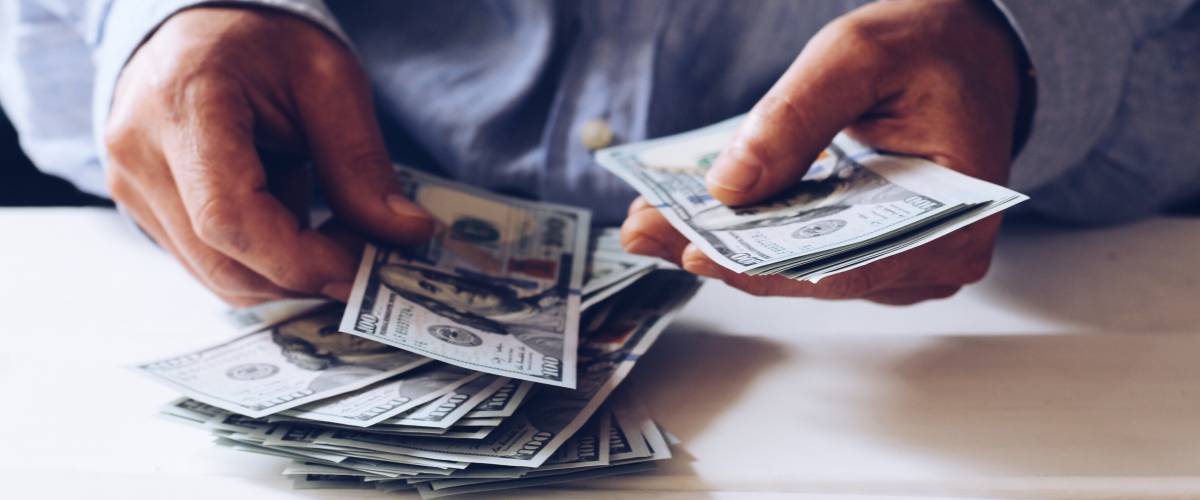Obamacare plans are cheaper than ever

When the ACA was passed in 2010, it made health insurance more affordable for millions of Americans. But even with subsidized plans, health care costs could still eat up a huge chunk of income for middle class Americans.
Biden’s bill ensures that, going forward, policyholders will pay no more than 8.5% of their income on health coverage — down from 10% before. And lower-income enrollees will receive subsidies that completely eliminate their premiums.
The new rules also open up assistance to everyone earning more than 400% of the federal poverty level, which works out to about $51,000 for individuals and $104,800 for a family of four.
With these changes in effect, 15 million uninsured Americans now qualify for financial assistance and another 9 million with subsidized plans can receive for even more help.
Since the subsidies became available on Apr. 1, Biden says more than 1.2 million Americans have taken advantage of the special enrollment period to sign up for a new health plan.
Stop overpaying for home insurance
Home insurance is an essential expense – one that can often be pricey. You can lower your monthly recurring expenses by finding a more economical alternative for home insurance.
SmartFinancial can help you do just that. SmartFinancial’s online marketplace of vetted home insurance providers allows you to quickly shop around for rates from the country’s top insurance companies, and ensure you’re paying the lowest price possible for your home insurance.
Explore better ratesHow much have costs fallen?

On average, your premium will decrease by about $50 a month, thanks to the Biden administration's subsidies.
And if you’re below that $51,000 income threshold, you could find a new health plan for about $1,000 less per month than before the bill was passed.
After the passing of Biden’s COVID relief bill, out-of-pocket costs dropped significantly.
A new insurance enrollee registering for a plan from Feb. 15 to March would have paid a monthly premium of $117. Now, with the subsidies factored in, that premium has dropped to $86, according to figures from the Department of Health and Human Services.
If you want to figure out how much your family could save, this handy subsidy calculator can give you a good approximation of your discounted rates.
That means, whether you need a little extra money to cover household expenses or pay down debt, with these new premiums, you could soon free up hundreds of dollars in your monthly budget.
What do you have to do?

If you’re already an Obamacare policyholder, there is some action required on your end to get these reduced premiums in your healthcare account.
First, you’ll have to go back to the website where you initially bought your health insurance plan and confirm you want the new, expanded tax credit for your existing plan.
Once there, you’ll have to update your preferences otherwise you’ll keep paying your current price until next spring — at which point you’d get the difference back in the form of a refund on your 2021 taxes.
Did you not buy your plan through the ACA marketplace? In that case, you'll have to go back and cancel it and switch to an eligible plan.
You have until Aug. 15 to take advantage of the special enrollment period, but taking action right away will ensure you get the new rates as soon as July 1.
Stop overpaying for home insurance
Home insurance is an essential expense – one that can often be pricey. You can lower your monthly recurring expenses by finding a more economical alternative for home insurance.
SmartFinancial can help you do just that. SmartFinancial’s online marketplace of vetted home insurance providers allows you to quickly shop around for rates from the country’s top insurance companies, and ensure you’re paying the lowest price possible for your home insurance.
Explore better ratesWhat to do if you need more money now

Most people will have to wait several weeks or even a year to see the difference in their bank account. If you need to add a little more to your monthly budget right now, you have a few options.
-
Keep the insurance savings rolling. Don’t stop the savings with just your health insurance plan. Using a digital broker, you could get a near-instant quote for affordable life insurance and you could also knock down your homeowners insurance bill by hundreds every month.
-
Refinance your mortgage (if you have one) and slash your monthly bill. If you haven’t shopped around for a better rate on your home loan, now is the time. Rates are still at some of the cheapest levels in history and refinancing could save you thousands of dollars through the rest of this year. Mortgage tech and data provider Black Knight says 14.1 million homeowners could refi and cut their monthly payments by an average $287.
-
Turn your pennies into a portfolio. You might not have a lot of money to spare these days, but there’s one simple way to change that. Download a popular app that allows you to invest your "spare change” and turn your pennies into a diversified portfolio.
Sponsored
Unexpected vet bills don’t have to break the bank
Life with pets is unpredictable, but there are ways to prepare for the unexpected.
Embrace Pet Insurance offers coverage for treatment of accidents, illnesses, prescriptions drugs, emergency care and more.
Plus, their optional wellness plan covers things like routine vet trips, grooming and training costs, if you want to give your pet the all-star treatment while you protect your bank account.






